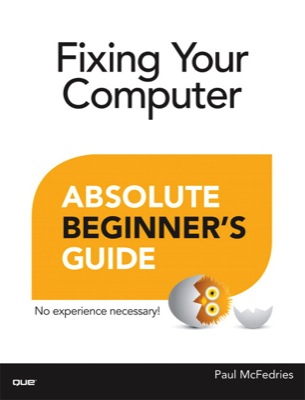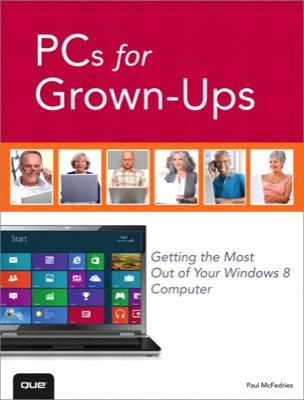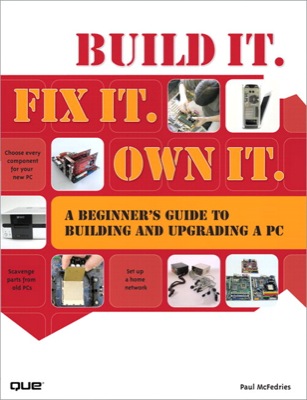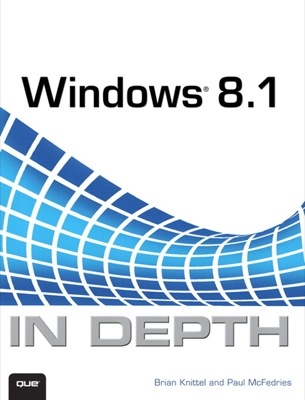Book Info
- Publisher: Que Publishing
- Pages: 372
- Price: US$24.99
- Pub. date: July 28, 2013
- Category: computers
- Tags: PC, maintenance, beginner, troubleshooting, hardware
One of the hallmarks of our age is the decline of the do-it-yourselfer in favor of the hire-an-expert-to-do-it-insteader. Toilet not flushing? Hire a plumber. Porch falling down? Hire a carpenter. Lights on the blink? Hire an electrician. You could argue, as many people have done, that a return to a DIY ethos would be good for society and good for the soul. The reality is that most of us don't have enough knowledge, skills, or time to repair a toilet, rebuild a porch, or replace a light switch without seriously electrocuting ourselves.
However, I would argue that one area where we almost always do not need to hire an expert is the digital domain of the PC. That statement might strike you as a tad crazy. After all, what could be more complicated, heck more intimidating, than a PC and all its mysterious electronics? Yes, it's certainly true that a typical PC is a head-scratchingly complex collection of transistors, chips, and diodes, a kind of Rube Goldberg machine for the digital age. But it's also true that when a PC fails in some way, it almost always fails in a relatively simple way. Most PC problems are solved just by tweaking a setting, updating some software, or by merely rebooting the computer! Other problems require replacing parts, but this is a task that's easily learned by any curious and motivated beginner.
I'm talking, of course, about you. Learning how to fix your PC is fun and nowhere as hard as you might think, for three reasons:
- All the parts you need — the power supply, memory, hard drive, expansion cards, and so on — are readily available online or from big-box retailers or electronics stores.
- All the tools you need — really not much more than a screwdriver or two — are part of most people's toolkits or can be easily obtained.
- All the techniques you need — inserting chips and cards, connecting cables, and tightening screws — are simple and straightforward.
Add to this the simple fact that repairing your own PC is better than hiring someone else to do it because it's cheaper, faster, and you get an empowering sense of ownership and accomplishment. Besides, repairing your own PC is both educational and just plain fun, so it's no wonder that so many people nowadays are going (or would like to go) the fix-it-yourself route.
Welcome, then, to Fixing Your Computer Absolute Beginner's Guide, the book that will be your guide on this fix-it-yourself path. This book will shows you everything you need to know to maintain, upgrade, and repair a PC. Even if you've never looked inside a computer and wouldn't know a motherboard from an expansion board or a CPU from a GPU, this book will gives you the know-how and confidence to fix a PC with your bare hands.










